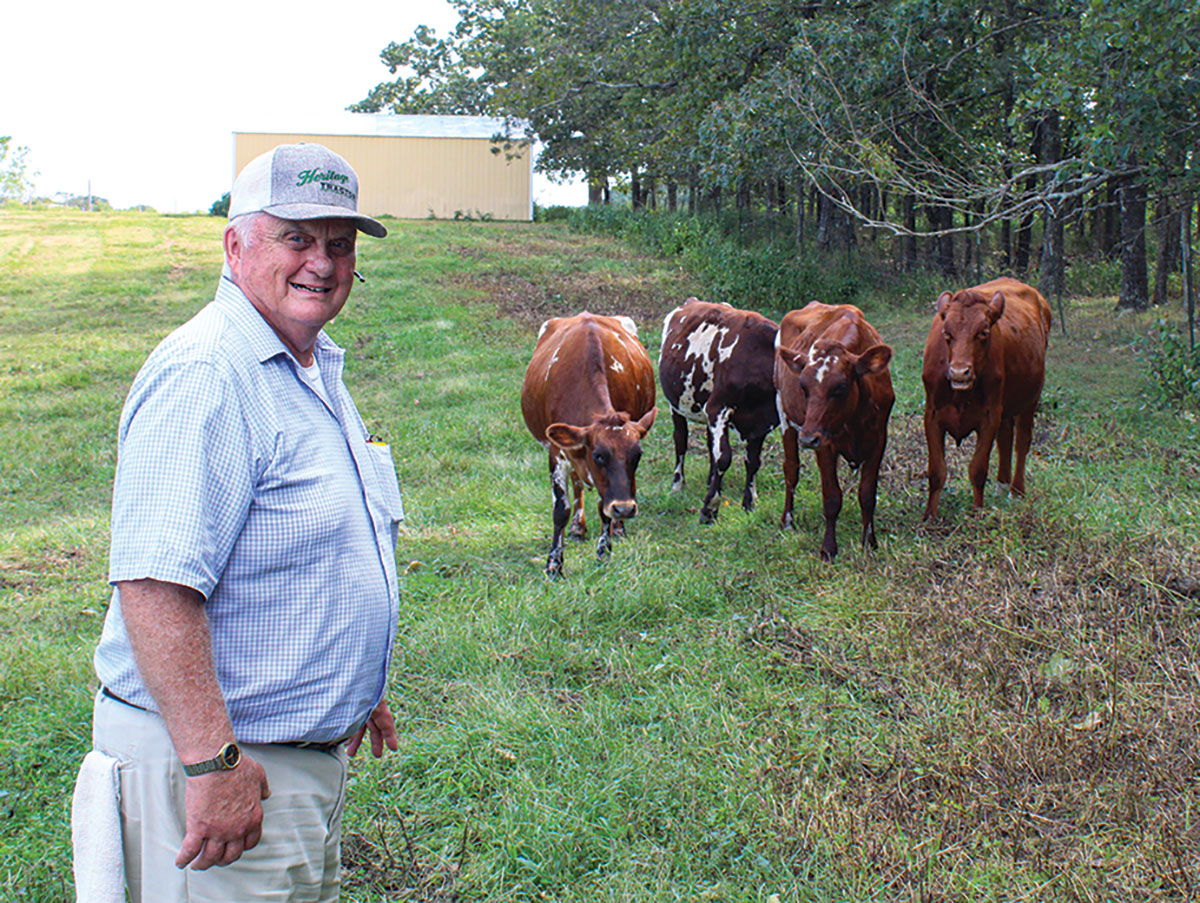
Putting ethics first with a desire to help people
NEOSHO, MO. – Shayna Nenneman, 37, grew up in the world of agriculture. A student of 4-H and FFA, she was raised showing pigs, horses, and dogs.
“My family has always had livestock as a hobby,” Nenneman said.
Unsurprisingly, this experience led her down the path of animal healthcare. She began working at a veterinary clinic at 17 years old and worked her way up to a veterinary assistant position. During this time, she completed an associate’s degree in general studies and veterinary technology.
At 25, Nenneman relocated to Stephenville, TX, to pursue barrel racing and matriculated at Tarleton State University, where she graduated with a Bachelor’s in Business Administration.
“I became a single mother and moved back to Southwest Missouri shortly after graduation,” Nenneman said. Upon her return to the Ozarks, she added a home on her parents’ property and began marketing commercial beef calves as a source of income.
“This very quickly turned into the Scottish Highland Cattle and a full-time business to support my kids,” Nenneman said, referring to her sons, Mason, 5, and Lane, 4.
Nenneman raises Scottish Highland cattle, bringing in herd dispersals from throughout the nation in order to supply the Midwest demand for the breed.
“They’re a unique, beautiful, and highly sought-after heritage breed,” Nenneman said of the Highland.
Honey Bee Cattle Company, the name of the operation, comprises 25 purebred American Highland Cattle Association (AHCA)-registered cattle, and the same number of mini- and micro-crosses.

“At any given time, there could be 60-80 head spread throughout our three properties, totaling 85 acres, depending on incoming and outgoing cattle,” Nenneman said.
Regarding breeding, Nenneman said she is currently completing Artificial Insemination (AI) courses. She stays current with all industry trends, citing the AHCA newsletter as a treasure trove of information.
“The crosses that provide the mini and micro sizes have presented me with more complicated pasture scenarios,” she said, “resulting in the need to shorten my calving window for spring and fall calves.”
Nenneman’s key goal is registering all of her purebred cattle as AHCA. Regarding the mini and micro cattle, it’s challenging to prevent defects, so she is actively culling and evolving genetics to produce quality calves.
Trial and error led Nenneman to research nutrition. She now tests hay prior to purchasing; at the end of the day, she said, there’s simply not enough land to sustain cattle and produce her own hay.
“I’m a big fan of ADM products,” she said. Her cattle are provided ADM cubes to supplement their hay ration with AMPT minerals for pasture cattle. The more concentrated cattle are given alfalfa, grass hay, ADM grain, and ICON tubs.
In addition to keeping their stomachs full, Nenneman keeps her livestock healthy. The keeper herd receives an annual Bovi-Shield 5VL6 vaccine, as well as a Blackleg combo and a rotation of dewormers every six months from Safe-Guard to Dectomax and Clean-Up Pour-On for ectoparasite control.
All cattle receive age- and gestation-appropriate vaccines, including Inforce 3, OneShot BVD, CattleMaster GOLD FP5, StayBred, and ULTRABAC.
“I work closely with my veterinarian to vaccinate incoming and outgoing cattle based on their backgrounds and destination,” Nenneman said. “Animal health, well-fed cattle, and a solid mineral program are showing success in my breeding program.”

While cattle are Nenneman’s primary focus, she also owns four miniature donkeys and barrel horses and participates in the breed-up program for Valais Blacknose Sheep.
“We just welcomed our first 100% ewe lamb,” she said.
Consultations make up a large portion of Nenneman’s work.
She said many of her clients have never owned cattle and are drawn to this breed for by their long, shaggy coats (which are, admittedly, adorable). Consultations generally include set-up, shelter, feeding, mineral and livestock handling.
Nenneman’s background as a veterinary technician, she said, has helped her develop a successful mindset for animal welfare.
“I work very closely with my veterinarians. They remain pretty up-to-date on my cattle, and they know how I operate,” she said. “I also listen to nutritionists as I have diverse needs and offerings on my farm.”
As with any agricultural journey, Nenneman has seen her fair share of adversity.
“Some of the biggest hurdles I’ve overcome in this industry have been the politics,” she said, pointing to the cutthroat world of social media and its impact on the Scottish Highland Community.
“Putting ethics first and the desire to help people is what I believe has helped me be successful.”
In the future, Nenneman plans to expand Honey Bee Cattle Company as land availability grows, eventually adding additional recipient cattle to the embryo program.







